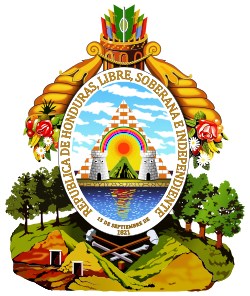This article's lead section may need to be rewritten.(July 2016) |
 |
|---|
Honduras National Congress has 128 members (diputados); they serve four-year terms.
Contents
- Primary elections of Honduras
- General elections of Honduras
- Schedule
- Election
- Inauguration
- Recent elections
- 2005 Presidential election
- 2009 Presidential and parliamentary elections
- 2013 Presidential and parliamentary elections
- 2017 Presidential and parliamentary elections
- See also
- External links
Honduras elects on national level a head of state – the president – and a legislature. The President of Honduras is elected for a four-year term by the people by a simple majority of valid votes (nulls and blanks excluded). The unicameral National Congress (Congreso Nacional) has 128 members (diputados), elected for four-year term by proportional representation to represent the country's various departments. Honduras' presidential elections are held on the last Sunday of November of the election year.
Honduras has a multi-party system, but used to have a two-party system, which means that there were two dominant political parties: the Liberal Party of Honduras (PLH) and the National Party of Honduras (PNH). Ahead of the 2013 general election various new parties emerged as contenders for power and influence.
